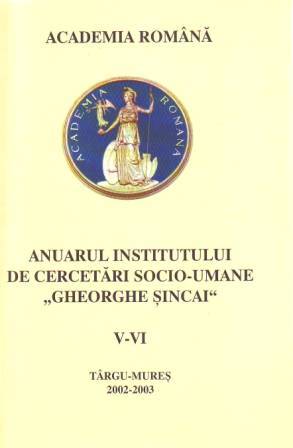The Romanian Ecclesiastical Elite from Transylvania and the Banat in the Modern Epoch. The University Formation
The Romanian Ecclesiastical Elite from Transylvania and the Banat in the Modern Epoch. The University Formation
Author(s): Cornel SigmireanSubject(s): History
Published by: Institutul de Cercetări Socio-Umane Gheorghe Şincai al Academiei Române
Keywords: the modern epoch; the Romanians from the Banat and Transylvania; Central and Western Europe; the House of Hapsburg; ecclesiastical intellectuality; the Greek Catholic Church
Summary/Abstract: Most of the studies dedicated to the history of the Romanians from the Banat and Transylvania have stressed the role of the clergy educated at the colleges and universities from Central and Western Europe in the process of the national and cultural rebirth of the Romanian society in the modern epoch. Transylvania’s integration among the possessions of the House of Hapsburg and the religious union at the end of the 17th century opened new opportunities for the Romanians to attend colleges and universities in Transylvania, Hungary, Austria and Rome. During the 18th century, hundreds of young Romanians studied theology in Rome, Vienna, Trnava, Lemberg, Esztergom, Bratislava, Buda, Cluj, or in other cities of the empire and many of them would become the ecclesiastical elite of the Greek Catholic Church. Beginning with the 19th century, the first generations of Orthodox theologians followed their studies in Vienna. In the second half of the 19th century and the first two decades of the 20th century, despite the fact that we can notice a unprecedented diversification of the intellectual careers embraced by the Romanians, the ecclesiastical intellectuality represented 40% from the total of the Romanian intellectuals from the Banat and Transylvania.
Journal: Anuarul Institutului de Cercetări Socio-Umane »Gheorghe Şincai« al Academiei Române
- Issue Year: 2003
- Issue No: 05+06
- Page Range: 20-29
- Page Count: 10
- Language: English

